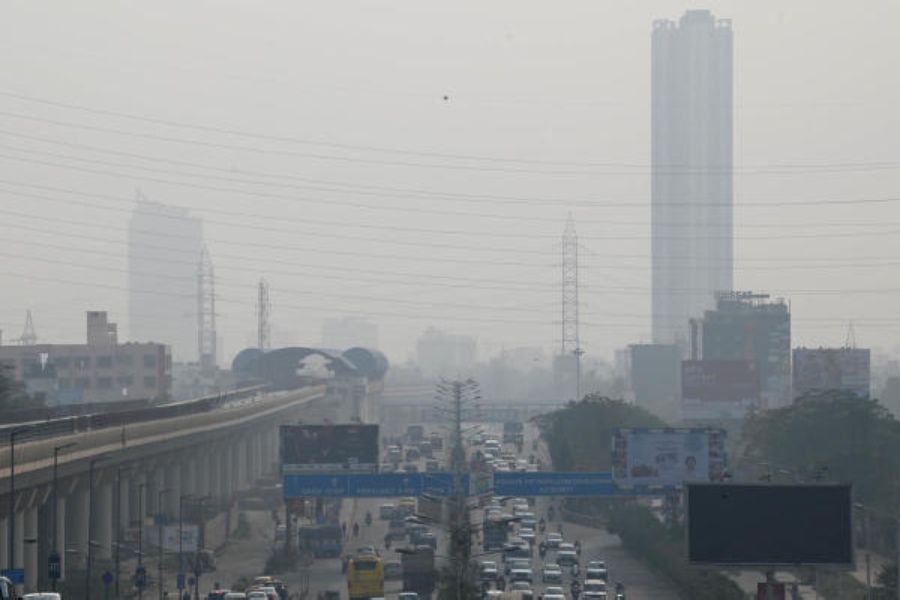At least three monitoring stations in Calcutta recorded “poor” air at 10pm on Saturday, after reporting “moderate” air the previous day and “satisfactory” air on Thursday, according to data published by the Central Pollution Control Board.
The three stations that recorded the steady decline in air quality since Diwali are located in Bidhannagar, Fort William and Jadavpur.
Of the seven air quality monitoring stations run by the central board in Calcutta and Bidhannagar, the scale of decline was the worst at the one in Ballygunge, which recorded “very poor” air at 10pm on Saturday.
The air quality was “satisfactory” and “good” at 10pm on Friday and Thursday, respectively, at the Ballygunge station.
According to the central board, “very poor” air can cause respiratory illness on prolonged exposure, “poor” air can cause breathing discomfort to most people on prolonged exposure, “moderate” air can cause breathing discomfort to people with lung and heart diseases, “satisfactory” air can lead to minor breathing discomfort in “sensitive” people and “good” air quality has “minimal impact” on health.
A senior scientist with the Bengal pollution control board said it is difficult to pin down a reason for the gradual decline in air quality over the three days, but a steady slowing down of the wind speed during the period could be a contributing factor, he said.
“Diwali (Thursday) was windy and that helped in dispersing the pollutants generated by the bursting of firecrackers. Friday and Saturday evenings were not as windy. Winds help disperse pollutants. The absence of winds means the air pollutants remain trapped in a particular place for a long duration,” the scientist said.
Residents across Calcutta complained about rampant bursting of noisy crackers on Friday and Saturday night. In some places, sounds of cracker explosions could be heard on Sunday evening, too.
The pollutants released by the crackers add to the pollutants already in the air.
The state PCB scientist warned that as winter approaches and the mercury slides further, the air quality would only worsen.
“Air becomes cooler during winter. Cooler air is heavier and does not rise as much as the warmer air of the summer months. As a result, the air pollutants remain trapped close to the ground during winter, resulting in the worsening of the air quality index,” the PCB scientist said.
The Alipore Met office has said the minimum and maximum temperatures are likely to slide by 2 to 3 degrees Celsius by Monday, compared to the temperatures recorded on Friday.
The Celsius is likely to go down further after the second week of November.
With the air quality set to worsen in keeping with the slide in the mercury, patients suffering from respiratory diseases should take precautions, warned pulmonologist Arup Halder.
Children and the elderly, he cautioned, are more vulnerable to respiratory diseases.
“People with chronic heart diseases and respiratory ailments should minimise their outdoor activities and exposure to the polluted air. The children and the elderly should be more cautious,” said Halder, a pulmonologist at CMRI Hospital.
“Meteorological factors, the cumulative effect of the bursting of crackers over the past three days or both could be responsible for the drop in the air quality.”











